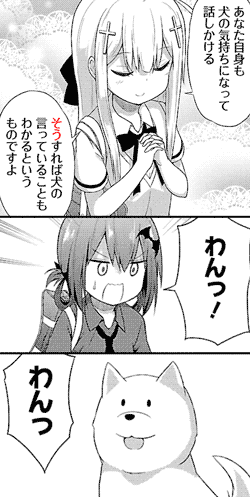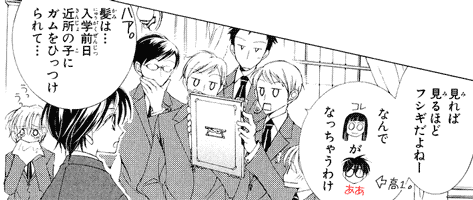In Japanese, kou, sou, aa, dou こう, そう, ああ, どう mean "this manner," "that manner (near you)," "that manner (far from us)," and "what manner?" They're kosoado words referring to manner.
Demonstrative Pronouns
Like any other kosoado pronoun, kou, sou, aa, dou differ by their prefix. One weird thing is that the third word is a-a, not a-ou as you'd expect, but you get used to it.
- kou
こう
This way. The way I'm talking about.
Like this.
In this manner. - sou
そう
That way. The way you said.
Like that. (near you.)
In that manner (near you.) - aa
ああ
That way. The way neither of us are talking about.
Like that. (far from us.)
In that manner (far from us.) - dou
どう
What way? How?
Like what?
In what manner?
vs. こんな, そんな, あんな, どんな
The difference between kou, sou, aa, dou and konna, sonna, anna, donna is that kou, sou, aa, dou こう, そう, ああ, どう are demonstrative pronominal adverbs, while konna, sonna, anna, donna こんな, そんな, あんな, どんな are demonstrative pronominal adjectives.
This means that kou says "the verb is done like this," while konna says "the noun is like this." For example:
Examples
- sore wa kou kaku
それはこう書く
That, [you] write like this. - naze kou natte-shimatta?!
なぜこうなってしまった?!
Why did [it] end up like this?! - kare wa kou itta...
彼はこう言った・・・
[He] said [it] like this... - kou sureba yokatta-n-da
こうすればよかったんだ
[It] would have been better if [I] had done it like this. - watashi wa sou omou
私はそう思う
I think like that.
That is how I think.
I agree with what [you] said.- Could be with what I said previously too.
- sou wa ikemasen
そうは行けません
[It] can't go like that.
That won't do.
You can't do things that way. (I won't let you)- ikenai
行けない
Can't go. (literally.)
Used after something that isn't okay.
- ikenai
- min'na aa desu ka?
みんなああですか?
Is everyone like that?
Is everyone that way?- Not like me or you, like "that."
- kono kuni wa dou naru?
この国はどうなる?
This country will become how?
How is this country going to turn out?
What will become of this country?
As always, any question asked with a do ど interrogative can be answered with a ko-so-a こそあdemonstrative. For example:
- dou yatte asobu?
どうやって遊ぶ?
How do to play?
What do [you] do in order to play [with this]?- yaru
やる
To do.
- yaru
- kou, kou yatte asobu no
こう こうやってあそぶの
Like this, [you] do like this to play. - o, oooo'!!
お おおーーっ!!
Oh, oooohh!!
Using そう
The word sou そう can be used to agree or refer to things that another interlocutor has said or that the speaker himself said earlier. This is kind of tricky to understand.
Verbs like "to say," "to think" are, well, verbs, so if you use sou そう with them it means "to think that way," "to say that way." In which case the "way" refers to what was said or thought.
- kou itta
こう言った
To say like this.
To have said this. These words.
When they're used with sou そう, it can refer to what someone else said.
- ore wa {nihongo ga muzukashii} to omou
俺は日本語が難しいと思う
I think that {Japanese is difficult}. - watashi mo sou omou
私もそう思う
I, too, think that way.
I agree with that thought.
Above, two people think alike.
The word sou そう can also be used to refer to a way you have mentioned yourself.
- nihongo wa muzukashii, watashi wa sou omotta
日本語は難しい、私はそう思った
Japanese is difficult, I thought that way.
Japanese is difficult, so I thought.
Above, a single speaker refers to a previously mentioned thought, implying he doesn't think that way anymore.
- Context: anime attempts inter-species communication, circa 2014, colorized.
- anata jishin mo
inu no kimochi ni natte
hanashi-kakeru
あなた自身も犬の気持ちになって話しかける
You yourself too become like the dog's feelings and start talking.- You put yourself in the dog's shoes and start talking to him.
- You make yourself feel like a dog and start talking to him.
- You make yourself think like a dog and start talking to him.
- hanashi kakeru
話しかける
To start talking with someone. (in this case, with the dog.) - inu no kimochi
犬の気持ち
Dog's feelings.
How the dog feels.
How the dog thinks.
The perspective of a dog. - anata jishin mo
あなた自身も
You yourself too. You too. (the dog already thinks like a dog, so the point is that you, too, think like a dog.)
- sou sureba {inu no
itte-iru} koto mo
wakaru toiu
mono desu yo
そうすれば犬の言っていることもわかるというものですよ
If [you] do that, the thing [that] {the dog is saying} [you'll] understand.- If you do that, you should be able to understand what the dog is saying.
- wan' わんっ
Woof.
The word sou そう isn't just a kosoado pronoun. It's also a suffix and interjection.
- oishi-sou da
美味しそうだ
It seems tasty. - sou da!
そうだ!
That's right!
See the article about sou そう for details.
そう vs. ああ
There's a couple of differences between sou そう and aa ああ.
First off, aa ああ can also mean "yeah," or "yes." This is often the meaning of aa ああ you'll see, and also the meaning that's not a kosoado word.
The kosoado word aa ああ isn't used very often. In order to use it, you need to be talking about how something is that isn't you, that isn't whom you're talking to, and that wasn't mentioned by either of you.
Overwhelmingly, you'll use sou そう instead.
- Context: the club wonders how Haruhi ハルヒ changed her appearance so drastically.
- mireba
miru hodo
fushigi da yo ne~~
見れば見るほどフシギだよねー
The more [you] see it the stranger [it] gets. - nande
kore ga aa nacchau wake
なんでコレがああなっちゃうわけ
For what reason did this ended up becoming like that?- This: in middle school, chuugakkou 中学校, Haruhi looked like a normal girl.
- Like that: in high school, koukou 高校, Haruhi looks like a boy.
- Although Haruhi is in front of them, the word used isn't sou そう but aa ああ. That's because the guys aren't talking to her, they're talking about her. She's a third party in the conversation.
- kou ichi 高1
First year of high school. - nacchau なっちゃう
natte-shimau なってしまう
End up becoming.
- kami wa... nyuugaku zenjitsu kinjo no ko ni gamu wo hittsukerarete...
髪は・・・入学前日近所の子にガムをひっつけられて・・・
The hair... days before entering school, a [chewing] gum was [put on it] by a neighborhood kid...- Hikari starts explaining how she became "like that," aa ああ, or, from her point of view, "like this," kou こう.
Using どう
The interrogative pronoun dou どう is a bit tricky because it can be used to say a lot of things.
As we've already seen, it can be combined with yaru やる to ask how to do something.
- dou yatte katsu?
どうやって勝つ?
How do to win?
どうです
The word dou どう can be used with a copula can also be used to ask how something is or was.
- dou da? どうだ?
dou desu? どうです?
dou desu ka? どうですか?
How is it?- In particular, dou da can mean "how do you like that?!" when a character is taunting another with a prank, an attack, or even showing off.
- kore de dou da?!
これでどうだ?!
With this how is it?!
How do you feel about this?! - *shoots missile* "not so weak now, am I?! Hahahahahaha!"
- dou datta? どうだった?
dou deshita? どうでした?
dou deshita ka? どうでしたか?
How was that?
How did it go?
The word dou どう alone can also be used to ask questions, specially when asking someone's opinion about something.
- dou?
どう?
How is it?
How is the taste? Do you like it?
How do I look? Do you like it?
How is it going? Did you hack the enemy's mainframe yet?
How does it look? Do you like my drawing?
どうする
It can also be combined with suru する in various ways, each with very weird meanings. For example:
- dou suru?
どうする?
How do? (literally.)
What are [you] going to do? (actual meaning.) - dou shita?
どうした?
How did?
What happened?- Used to ask what's bothering someone, troubles, worries, and so on.
- dou shiyou!
どうしよう!
How let's do?!
What should I do?!- Used when troubled about a thing, not knowing what to do about it.
- dou sureba ii?
どうすればいい?
If done how is good?
How should I do it so it turns out goo?
What should I do? - dou shitara ii ka wakaranai
どうしたらいいか分からない
How done would be good isn't understood.
I don't know what would be good if I did.
I don't know what I should do.
~てどうする
The form -te dou suru ~てどうする is probably its weirdest iteration.
- asoko ni itte dou suru?
あそこに行ってどうする?
[You] go there, do how?
[You'll] go there, and then do what?- This is normally used when someone says "I'll go there," but that sounds like a bad idea, so another person asks: assuming you do go there, you'll do what once you get there? What's your plan? In the sense going there is meaningless.
- From there, it's often used whenever someone has a stupid idea or did something stupid, and someone is saying they shouldn't do that.
- shinde dou suru?!
死んでどうする?!
You die, then what?
What good will come out of it if you die?
If you die, what happens? - makete dou suru?!
負けてどうする?!
If you lose [the fight], what happens?! - kibou wo ushinatte dou suru?!
希望を失ってどうする?!
If [one] loses hope, then what will happen?!
どうでもいい
Like other kosoado interrogatives, it doesn't mean "how," it simply means a way that can't be specified. So it can be used to say "however" in the "any how" sense.
- dou demo ii
どうでもいい
Any how is good!
However is good!
Whatever way is good.
It doesn't matter how!
It doesn't matter!
どうもこうもない
It's also used in an expression to say any "how" doesn't exist.
- dou mo kou mo nai!
どうもこうもない!
Any way and also this way is nonexistent!
There is no way that exists!
None of that is going to work!
Single-Word Phrases
For reference, what kou, sou, aa and dou mean in single-word phrases.
- kou?
こう?
Like this?
In this way?
Am I doing this right? - kou!
こう!
This way! - sou?
そう?
Is that so?
Is it the way you said? - sou!
そう!
Like that! - aa?
ああ?
Is it that way? The way that guy is doing?- aa!
ああ!
Yeah. - aa!
嗚呼!
Ah!
- aa!
- dou?
どう?
How is it?
Is it good? Is it bad? Say something!



THIs.WAS.AWESOME! I felt my brain expand with understanding! どうも有り難うございました!
ReplyDeleteHello! I just have one question. There's the phrase "mireba miru" in one of your examples meaning "The more you look..." Can I do the same with other verbs? "ieba iu"? "kikeba kiku"? "hanaseba hanasu"?, or it is just a set phrase?
ReplyDeleteI also want to thank you. Your page is a treasure in internet. It has been extremely helpful in my journey to study Japanese by myself. Please, never die.
Yes, this sureba suru hodo pattern works for any verb.
DeleteI don't think I'm immortal, but I'll do my best. Thanks :)